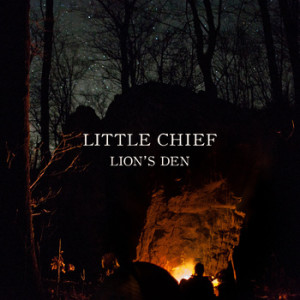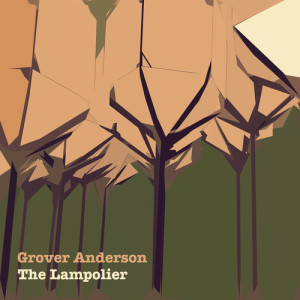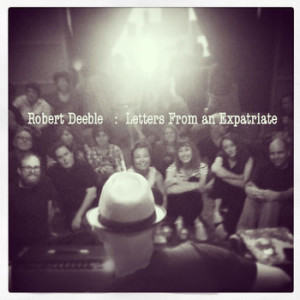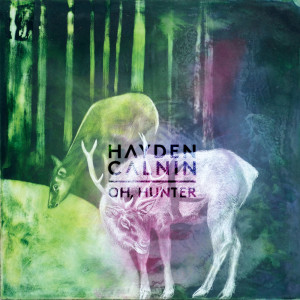
Arkansas folk-pop outfit Little Chief is shiver-inducingly good. Lion’s Den is a strikingly cohesive, mature, and assured work for a debut album from a young group of musicians.
Little Chief skews toward Mumford and Sons’ style of straightforward songcraft, but they do in a vastly less percussive style. The band softens the edges of everything, from gentle guitar strum to cello inclusions to melodic group vocals instead of shouted ones. The result is a collection of songs that work their way into your long-term memory in a very unassuming manner. I’ve been humming Little Chief tunes long after I heard them, and it drives me back to the album.
Their gentle touch makes every high higher than it would be, because it feels non-obvious and genuinely celebratory. These aren’t party songs, they’re songs of jubilation. “Brighton Shore” and “Shiloh” are both tunes that take feelings of loss and hardship and transform them. This album is deeply concerned with carrying on through trouble, and their humble approach to songcraft displays that earnest emotion.
“Mountain Song” and “Lion’s Den” show the arranging prowess of the band. “Mountain Song” has a long, gorgeous instrumental intro, while the full-song crescendo of “Lion’s Den” is punctuated by an excellent cello part, well-timed drums, and tasteful brass. This band has chops–it knows when to use them and when to let simplicity be.
If you’re into folk-pop, Lion’s Den is a must-listen. It has the emotive heft of The Head and the Heart, the arrangements of early Fleet Foxes, and melodies galore. It’s astonishingly confident for a debut album, but I’m not questioning it: if it’s good, it’s good. Highly recommended.
—

It’s a common problem that bands will find a sound they’re good at and hit it until their audience is just sick of it. Grover Anderson handles that problem by playing songs in vastly different genres, somehow managing to avoid sounding like a tourist or faker in any of them. Frantic murder ballads, love ballads, jilted lover electric blues, back-porch pickathon shout-it-outs, brilliant country tunes, and downtempo minimalist all hang out on The Optimist. It’s a credit to Anderson’s skills that each of them sounds natural. It makes for an odd listening experience as a collection of tunes (multiple people die, multiple people get married–sometimes in close quarters), but each individual song is worthwhile.
Given my personal predilections, I’m more interested in the bluegrassy “Pick Up Your Horn” and the Bon Iver-esque “Grindstone” than in the Mraz-style love songs “When You Come Near” and “Enough.” But the gentle fingerpicking of breakup tune “Dancing Slow” calls to mind the weighty work of Ray LaMontagne, which seems to be the antithesis of Jason Mraz in my mind.
All of this love in stark contrast to “The Lampolier” and “Philip Marshall Cates,” both of which are intense murder ballads, the likes of which I haven’t heard in a very long time. To start with, “The Lampolier” is an incredible piece of lyricism, as Anderson puts together an intriguing, eerie story through a very structured rhyme scheme. Amid this complexity, Lampolier delivers a masterful vocal performance that sees him ratchet from a gentle speak/sing to outright desperate hollering. I still get shivers when Anderson roars wordless distress three minutes in. The band is a runaway coal train behind him, pressing the song forward to its inevitable end. It’s the single and the opener, and it doesn’t take many brain cells to decide that both were excellent decisions. “Philip Marshall Cates” isn’t as electric in its convictions, but it’s another death ballad that sits in stark contrast to the love songs.
Also, “Little Spoon” is my favorite love song released this year. Some love songs are huge, sweeping announcements of love–others focus on the little, pedestrian parts of love that make it so wonderful, like drinking Blue Moons together, spooning, and spending time together. Anderson’s tune is the latter.
So Anderson’s got a ton going on in this album, being a lot of things to a lot of people. But no matter who you are, it’s hard to ignore that Anderson’s songwriting skill is great. I look forward to seeing how he adapts and focuses his skills in upcoming work (or not). If you’re into people who play acoustic guitars, Grover Anderson has something for you.









